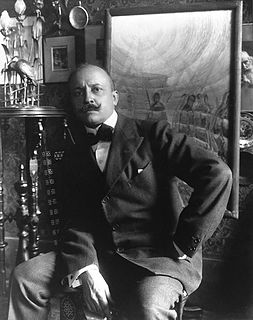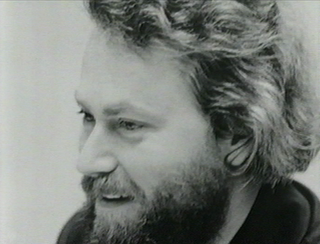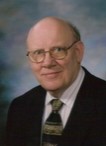A Quote by Gaston Bachelard
The philosophy of poetry must acknowledge that the poetic act has no past, at least no recent past, in which its preparation and appearance could be followed.
Quote Topics
Related Quotes
There must be what Mr. Gladstone many years ago called a blessed act of oblivion. We must all turn our backs upon the horrors of the past. We must look to the future. We cannot afford to drag forward across the years that are to come the hatreds and revenges which have sprung from the injuries of the past.
The biggest mistake investors make is to believe that what happened in the recent past is likely to persist. They assume that something that was a good investment in the recent past is still a good investment. Typically, high past returns simply imply that an asset has become more expensive and is a poorer, not better, investment.
what he sought was always something lying ahead, and even if it was a matter of the past it was a past that changed gradually as he advanced on his journey, because the traveller's past changes according to the route he has followed: not the immediate past, that is, to which each day that goes by adds a day, but the more remote past. Arriving at each new city, the traveller finds again a past of his that he did not know he had: the foreignness of what you no longer are or no longer possess lies in wait for you in foreign, unpossessed places.
There is a constant in the average American imagination and taste, for which the past must be preserved and celebrated in full-scale authentic copy; a philosophy of immortality as duplication. It dominates the relation with the self, with the past, not infrequently with the present, always with History and, even, with the European tradition.
It seems to me that the dedication of a library is an act of faith. To bring together the resources of the past and to house them in buildings where they will be preserved for the use of men and women in the future, a nation must believe in three things. It must believe in the past. it must believe in the future. It must, above all, believe in the capacity of its own people so to learn from the past that they can gain in judgment in creating their own future.
Mathematics is a form of poetry which transcends poetry in that it proclaims a truth; a form of reasoning which transcends reasoning in that it wants to bring about the truth it proclaims; a form of action, of ritual behavior, which does not find fulfilment in the act but must proclaim and elaborate a poetic form of truth.
Almost the first thing Obama did in the White House was to return the bust of Winston Churchill to the British embassy. That suggests a major re-ordering of things. It'll be fascinating to see what happens from now on. It was a genuine break with the recent past - perhaps to re-connect with the past past.
You have a lot to learn, young man. Philosophy. Theology. Literature. Poetry. Drama. History. Archeology. Anthropology. Mythology. Music. These are your tools as much as brush and pigment. You cannot be an artist until you are civilized. You cannot be civilized until you learn. To be civilized is to know where you belong in the continuum of our art and your world. To surmount the past, you must know the past.
But there was no hiding from Conscience. Not in new homes and new cars. In travel. In meditation or frantic activity. In children, in good works. On tiptoes or bended knee. In a big career. Or a small cabin. It would find you. The past always did. Which was why... it was vital to be aware of actions in the present. Because the present became the past, and the past grew. And got up, and followed you. And found you... Who wouldn't be afraid of this?
The art and architecture of the past that we know is that which remains. The best is that which remains where it was painted, placed or built. Most of the art of the past that could be moved was taken by conquerors. Almost all recent art is conquered as soon as it's made, since it's first shown for sale and once sold is exhibited as foreign in the alien museums. The public has no idea of art other than that it is something portable that can be bought. There is no constructive effort; there is no cooperative effort. This situation is primitive in relation to a few earlier and better times.








































